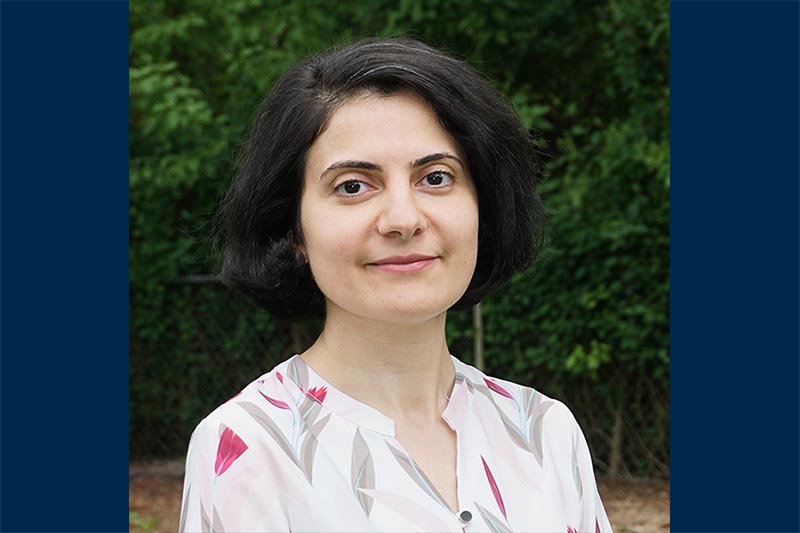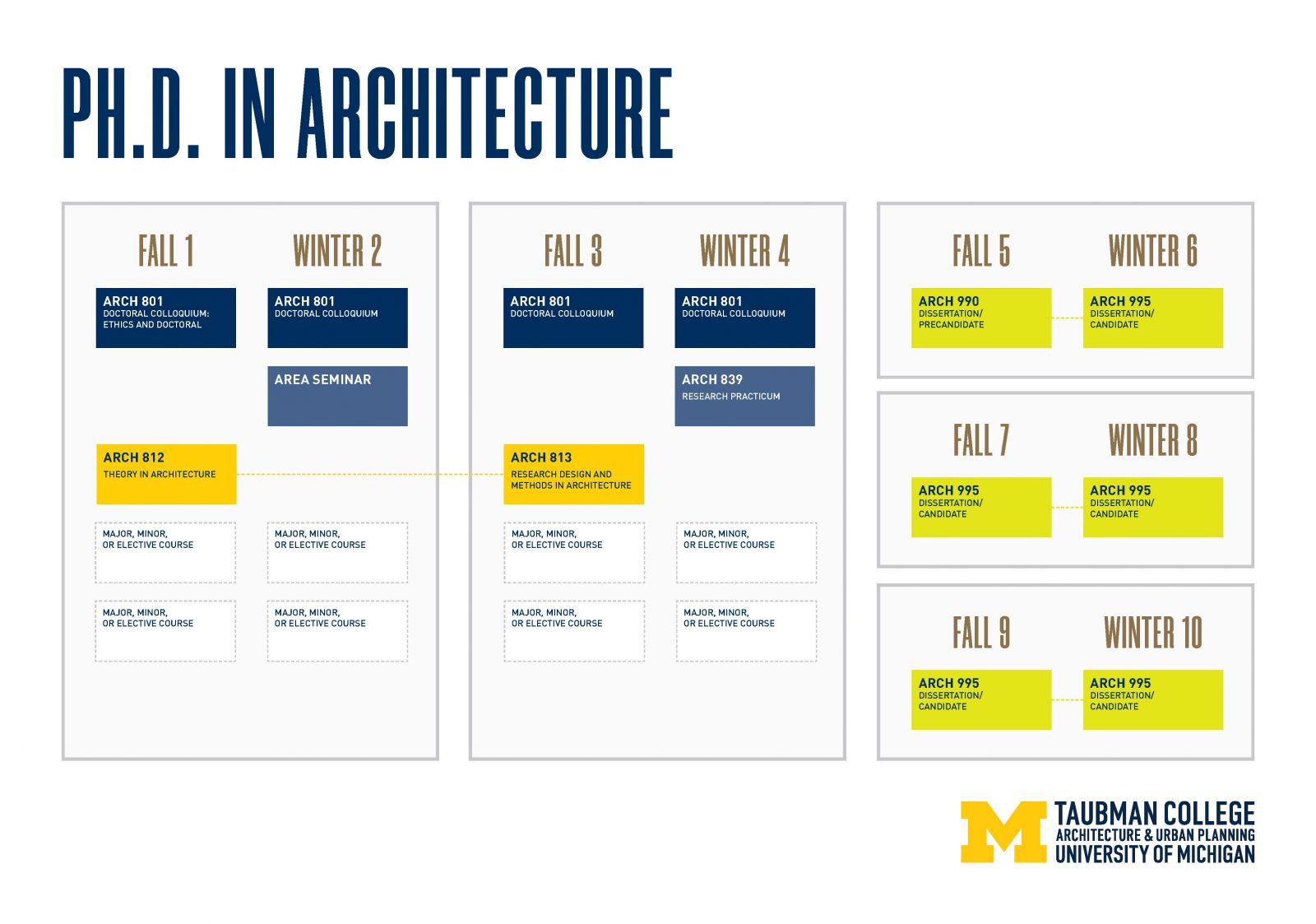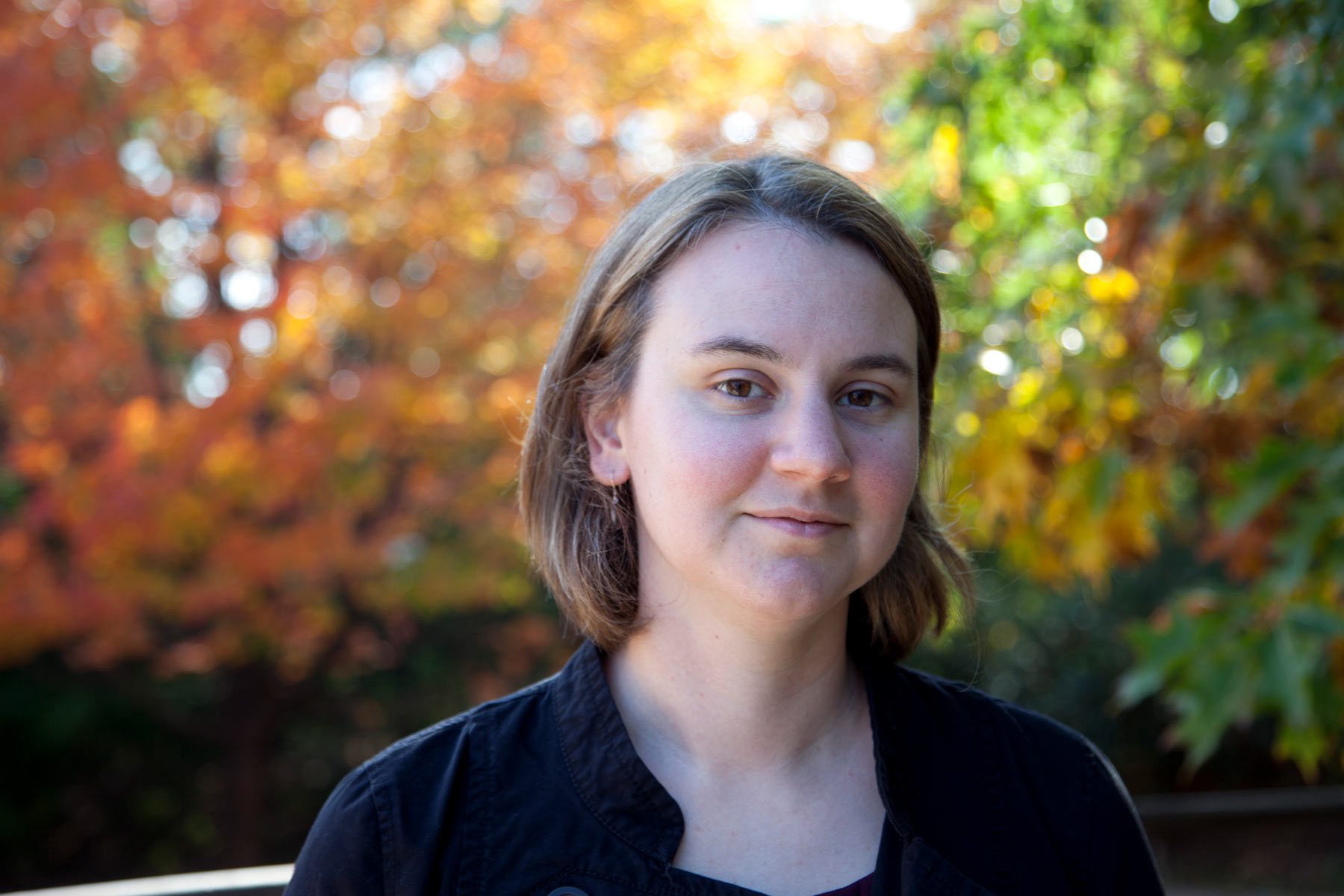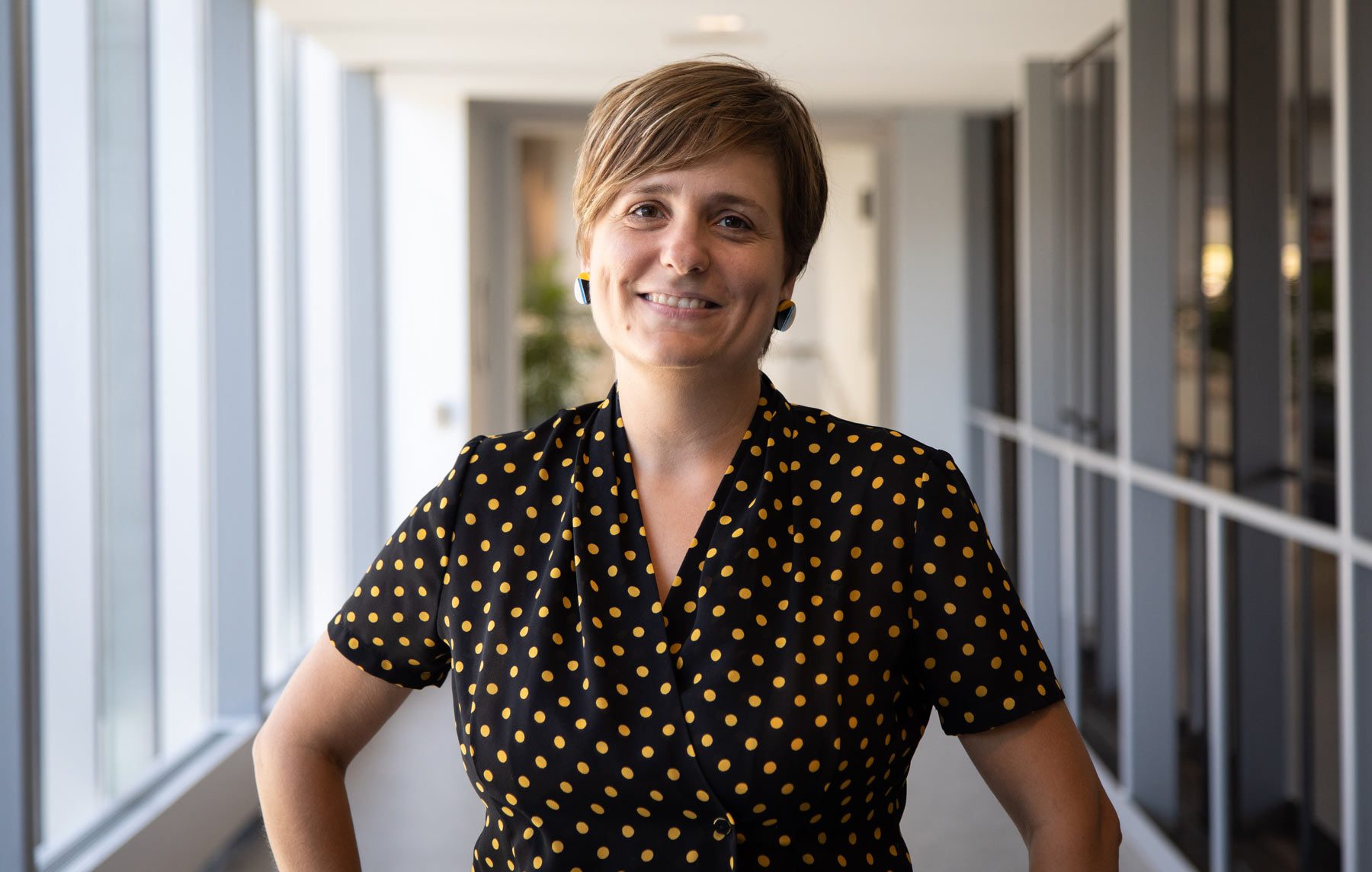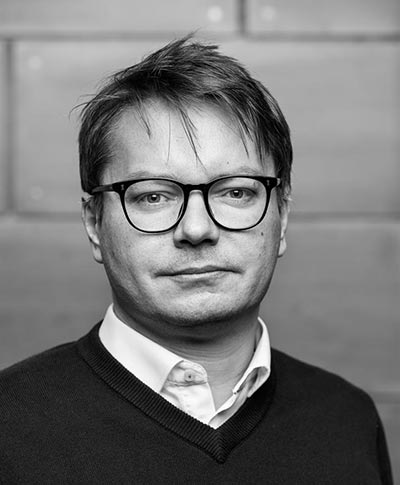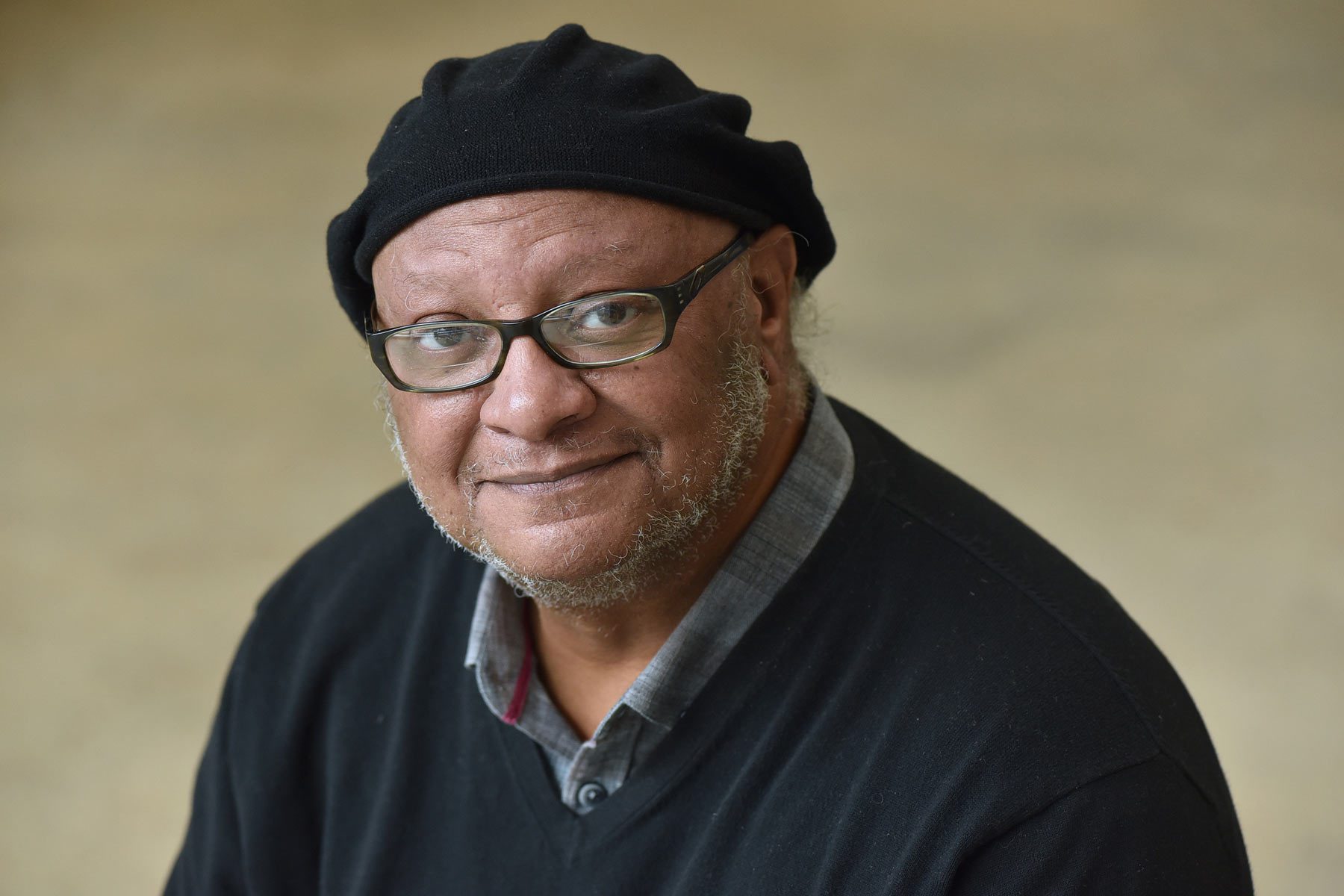Ph.D. in Architecture
Application Deadline:
December 15 annually
Intent to Enroll Deadline:
April 15 annually
Our Mission
The Doctor of Philosophy (Ph.D.) invites applicants who wish to investigate architecture and the built environment in focused projects that unfold over a span of years. Students embarking on a doctorate conduct original research that yields new insights into past, current, and future developments of architecture and building practices.
Doctoral Studies promotes independent critical thinkers and research specialists across a range of fields within the increasingly broad fields of architecture and the built environment.


Program History
The University of Michigan’s Ph.D. in Architecture was one of only four such programs in the United States when it was established in 1969. Since that date, the program has continued to evolve in response to changes in the discipline and the profession. Studies currently underway at Michigan testify to rapidly shifting disciplinary boundaries and increasingly global outlooks in the field overall but particularly in areas in which our faculty are strong, such as global modernism, media practices in architecture, space syntax, structural modeling, envelope design, and urban history.
Michigan’s remarkable research facilities allow our students to develop interdisciplinary research projects with partners across campus. The Horace H. Rackham Graduate School awards the Ph.D., generally after five or six years of study.
Additional Resources
The architecture school environment continues to provide Doctoral Studies with a rich supporting context, ranging from robust lecture and seminar series, to remarkable technical facilities that support spatial and numeric data and global information systems as well as fabrication and testing facilities.
A broad array of resources beyond our home on North Campus includes extensive research libraries and computing facilities that are among the best in the country. Students are encouraged to seek out resources that are necessary to develop and carry out topics of research, particularly for the dissertation, if any are unavailable on campus.

Expectations
We require a relatively high number of course credits (40 in total), and a significant time commitment to completion of degree. Four years are normally spent in residence and are fully funded with tuition, stipend, and benefits. Two additional years of tuition benefit allow students to complete the degree with fellowship support from other university units or external sources, support that is typically raised in their fourth and fifth years.
The first two years of the degree are devoted to intensive coursework intended to train students in the principal methods and materials used in our subfields (organized here by faculty specialization as BT, DS, and HT). The third year is spent preparing for and passing doctoral examinations and identifying a dissertation project. Students advance to candidacy after taking their preliminary examinations, by January of the third year at the latest. HT students must satisfy the language requirement (minimally, competence in one research language) by this time as well.
At the end of the third year, students defend their dissertation proposal in a public defense with their dissertation committee. Years four and five and, if necessary, six, are spent in researching, writing, and defending the dissertation. During the initial phase of dissertation research, students may spend substantial time off campus, supported by internal and external fellowships. They often return to Ann Arbor to write up the results of research. The dissertation is defended in a formal dissertation defense. Time to degree varies among the specializations of our program, but students typically take at least five or six years to complete the degree.

/ Major and Minor Areas of Specialization
Each doctoral student identifies a major and a minor area of specialization and works with faculty advisors associated with those areas. These advisors should be identified and contacted by the middle of the second year of coursework at the latest, although many students have identified a primary advisor before arriving in Ann Arbor.
Majors
The major can be defined in dialogue with the student’s advisor; several possible major areas are listed below:
- Building Technology
- Critical Urban Studies
- Computational Design
- Design Studies
- Digital Fabrication
- History and Theory
- Media Studies
Minors
The minor is a distinct subject area that complements the major. The minor may lie in Architecture, in Urban and Regional Planning, or in another University of Michigan department, program, or center.
Coursework in the minor must be approved for Rackham graduate credit, deemed appropriate by the Doctoral Advisory Committee, and approved by the major advisor.
/ Degree Requirements
Please see the Doctoral Studies Handbook for further details about these components.
Incremental Requirements
Requirements that must be taken in sequence, as the student moves through Doctoral Studies, include:
- Coursework
- Preliminary Examinations
- Candidacy
- Dissertation Proposal
- Dissertation
Standing Requirements
Requirements that must be completed, either as a condition of admission or as a condition of continuance in the program, include:
- Annual Program of Study Report
- English Language Proficiency
- Continuous Enrollment
- Satisfactory Progress
/ Steps to Candidacy and Beyond
Because many of our entering students come from professional degree programs, we emphasize the importance of the subtle but substantive shift from design-based studio work to research in major subfields of architectural practice and study. This shift often requires significant re-training in basic skills such as reading, writing, and research methods.
Coursework
Students are required to complete a minimum of 40 credit hours of graded coursework (including core courses and electives) prior to achieving candidacy. All courses must be completed before Preliminary Exam preparation can begin.
Coursework consists of:
- ARCH 801 Doctoral Colloquium [1 credit x 4 terms = 4 credits]
- ARCH 812 Theory in Architectural Research [3 credits]
- ARCH 813— Research Methods [3 credits]
- ARCH 823, 824, or 825 Area Seminar [3 credits]
- ARCH 839 Research Practicum [3 credits] or URP 801 [3 credits]
- 2 cognate courses (graduate level courses outside of Architecture) [6 credits]
- 6 additional upper-level classes (500- to 800-level) in Architecture or as approved by advisor [18 credits]
In summary, students take:
- 16 credit hours of core courses* (5 courses, including the Research Practicum)
- 9 credit hours of letter graded courses in the major specialization area (3 courses)
- 9 credit hours of letter graded courses in the minor specialization area (3 courses)
- 6 credit hours of letter graded elective coursework (2 courses)
The Preliminary Examination
The preliminary examination forms a bridge between coursework and dissertation research. It is designed to consolidate and test students’ command of their major and minor research fields and is based upon the initial formulation of a dissertation topic. Students should take the preliminary examination by January of the third year (check candidacy deadlines on the Rackham website).
Preparation
During the second year, students provide a tentative list of the three members of their Preliminary Examination Committee to their advisor and the Doctoral Coordinator. This committee consists of the student’s primary advisor (normally the anticipated chair of his/her Dissertation Committee) and at least one other faculty member from Architecture, with the third member invited from the department that houses the student’s minor area. Major and minor advisors should meet with the student in the last weeks of the winter term of the year prior to the examination to define the areas of questioning and to help with the initial reading lists. The student should begin studying over the summer and continue through to the test date of the following semester. One full meeting of the Preliminary Examination Committee should take place early in the fall semester of the third year, and subsequent meetings may occur at periodic intervals until the test date, as requested by student or committee members.
Please note that students must have completed the research practicum and be registered for at least one credit hour of 990 to be eligible to sit for the preliminary examination.
Components
The preliminary examination first requires the compilation of reading lists based on a series of questions articulated with the help of the Preliminary Exam committee. The examination itself consists of two parts: a written component (also comprising two parts) and an oral defense.
The written test consists of a Major area question, and a Minor area question. The student’s major advisor administers the Major area question, after prior consultation with the student. The minor advisor administers the Minor area question, after prior consultation with the student. The written exam is followed by an oral examination with the full Preliminary Examination Committee following the completion and assessment of both components of the written exam. The meeting offers an opportunity to discuss issues not addressed or insufficiently treated in the written exam and can thus provide the committee with further information about the student’s knowledge of the field. The meeting is also the occasion for looking forward and beginning to discuss preparation of the dissertation prospectus.
Failure. A student must pass all parts of the preliminary examination in order to proceed in the degree. He/she may be asked to retake unsatisfactory portions of the examination. Failure of the Preliminary Exam, however, may also result in permanent suspension from the program. Students cannot re-sit either part of the examination more than once.
The Dissertation
This guideline is intended to help students plan the research and writing of the dissertation, making it possible to finish within two or three years of passing the preliminary examinations, and sometimes earlier. Students should bear in mind that the successful completion of a dissertation is a two-way process of negotiation between student and advisor(s), drawing where appropriate on the advice and expertise of the other members of his/her committee.
Dissertation Proposal [End of Winter semester of third year]
Students who have passed their Preliminary Examination and achieved candidacy are expected to form a Dissertation Committee comprised of no fewer than four and no more than five members (see below) and to write a prospectus of their doctoral dissertation. This should be completed and defended at the end of the sixth term. All members of the committee should be brought into the discussion about the proposed dissertation as soon after successful completion of the Preliminary Exam as possible. All members of the Dissertation Committee should be present at the prospectus defense.
The proposal details concisely the dissertation project and situates the work in the field. The core of the document is typically no longer than 2500-3000 words in length, and the proposal includes a thesis statement, a review of the state of the field in which the dissertation is intervening, a tentative chapter outline, a research plan (including travel necessary to completion of research and a schedule for completion), and a working bibliography. The student should consult with the advisor and all members of the committee in the months when he or she is formulating this important document, which serves as the intellectual plan for subsequent dissertation research and as the basis for grant applications. The dissertation proposal defense typically opens with the student offering a brief presentation (no longer than 20 minutes) of his/her project. This is followed by comments from the members of the committee, and responses from the candidate. Students may pass the defense outright, or they may pass conditionally, with revisions required. Students are normally not permitted to schedule the defense until their committee deems them capable of passing this requirement, although in rare cases it is possible to fail a proposal defense. In that case, students will be given a fixed period of time for revision before a re-examination is scheduled. The defense provides a crucial opportunity for the committee and the student to discuss intellectual and methodological aspects of the project and formulate research plans and strategies to aid the student in timely completion of the work. A copy of the approved proposal with all requested changes should be filed with the degree office within two weeks after the proposal defense.
Dissertation Committee
The Rackham Graduate School requires that each Dissertation Committee have a minimum of four members, three of whom must be regular members of the Rackham faculty. One of these three Rackham faculty members serves as the student’s doctoral advisor; the advisor is primarily responsible for guiding the student through the process of dissertation writing and takes greater responsibility than other members of the committee for the student’s progress. One of these three Rackham faculty members must hold an appointment in a cognate field outside of the Architecture Program. The Program further requires that the dissertation committee include at least two Architecture faculty members. In certain cases, a student may elect to ask two faculty members to serve as co-advisors on their dissertation. Emeritus faculty members do not normally serve on dissertation defense committees after three or more years of retirement.
On the Committee composition, see: http://www.rackham.umich.edu/downloads/oard/forms/disscommitteeguidelines.pdf
The members of the Dissertation Committee should be registered with the Program directly after the Preliminary Exam defense and well before the Dissertation Proposal defense, since all members of the Dissertation Committee should help the student to craft a viable dissertation project. When necessary, changes may be made in the committee’s membership in consultation with the Coordinator of Doctoral Studies. All changes must be registered with the Coordinator and the Rackham Graduate School.
Faculty Responsibilities
- The dissertation advisor or co-advisors respond to students’ work-in-progress on the dissertation.
- While on sabbaticals or other leave of absence from the Department, advisors or co-advisors continue to supervise their advisees’ doctoral dissertations.
- If a student fails to meet the agreed-upon deadlines for submitting chapters, the student should re-negotiate the missed deadline with the advisor(s) in a timely fashion. While chapter deadlines may shift somewhat, any change to the overall time schedule should be negotiated with the advisor(s), who remains responsible for ensuring satisfactory progress.
Submitting the Dissertation
A student will be expected to present the completed dissertation and defend it at an oral defense conducted by the dissertation committee. It is the student’s responsibility to obtain information on dissertation deadlines, format, and procedures from the Rackham Graduate School well in advance of the defense. Procedures and requirements are outlined on the Rackham website.
Students continue to register for ARCH 995 (8 credits) during the semester in which they defend the dissertation.
A final draft of the dissertation must be submitted to all members of the dissertation committee at least two months in advance of the proposed defense date. It is to a student’s advantage to submit the preliminary final draft to the advisor or co-advisors well before this date. This ensures that any suggested revisions may be properly discussed and incorporated in the final draft in a satisfactory manner.
Defense
A dissertation can be completed within a given academic year only if the defense takes place before the end of the winter semester. This ensures that the advisor or co-advisors and members of the dissertation committee will be in a position to attend the defense. Spring or summer term defenses may also be scheduled if all committee members agree.
The entire dissertation committee (minimum four members) must be present at the dissertation defense. A speaker phone or skype connection will be set up if one or two members are resident outside of Ann Arbor. The defense is public and peers may attend.
After the defense, the student must incorporate corrections required at the defense and submit a final version to Rackham, approved by the advisor or co-advisors or a proxy by the Rackham deadline. The due date for submitting the final, approved dissertation in a given term is set by Rackham and is absolutely inflexible. Should a student miss the deadline for a given term by even a day, he/she will be compelled to pay tuition to enroll the following term.
Rackham sets specific dates each academic year for receiving the degree. These roughly correspond to the following: early October for a December degree; mid-April for a May degree; and late June for an August degree. Students and advisors should consult the Rackham website for specific dates in a given year.
Please see the Doctoral Studies Handbook for further description of these degree components.
/ Sample Schedule
All students who anticipate working with quantitative or qualitative data manipulation are required to complete at least three credit hours of graded coursework in statistical analyses and/or advanced research methods (beyond the required core course).
Students must complete two consecutive terms of full-time graduate work in residence beginning in the fall term of their first year so that the core courses may be taken in the required sequence. Students who have been offered special admission may be required to complete additional coursework.
Rackham requires that graduate-level cognate courses of at least four credit hours be satisfactorily completed in a department or program other than the Doctoral Studies in Architecture and the Architecture Program. These courses may be used to satisfy the major or minor requirement and must be approved by the student’s major professor. These credit hours are not additional to the 40 required program hours. Upon satisfactorily completing all Ph.D. coursework, a Ph.D. student is eligible to apply for and be awarded the master of science degree.
The university class schedule is a great resource to other interesting and beneficial courses offered outside of architecture.
Core Course Offerings
The core curriculum for the program consists of courses in the theoretical foundations of architecture, research methods, and seminars relating to the student’s major and/or minor specialization areas. For detailed descriptions of these courses, see the course descriptions section.
- Arch 801: Doctoral Colloquium (4 credit hours)
- Arch 812: Theory in Architectural Research (3 credit hours)
- Arch 813: Research Design and Methods in Architecture (3 credit hours)
- Area Seminar (choose one of three options):
- Arch 823: Area Seminar
- Arch 824: Area Seminar
- Arch 825: Area Seminar
- Arch 839: Research Practicum (3 credit hours)
- TOTAL: 16 credit hours
With approval from the Doctoral Program, a student may elect to take another three hour methods course in lieu of Arch 813.
Architecture Independent Study Approval Form – ARCH 810 (Ph.D. students only)
/ Recent Graduates
Graduates from the Ph.D. in Architecture program have completed Doctoral Dissertations on topics ranging from “Aural Architecture as Affect: Understanding the Impact of Acoustic Environments on Human Experience” to “Curating a Nation in Skopje: A Tale of One City’s Architecture and Politics.” View a selection of recent Doctoral Dissertations.
/ Faculty Teaching Core Courses
/ Frequently Asked Questions
What is the Rackham Graduate School?
The Rackham Graduate School and Taubman College work as a team to manage the application review process. As an applicant you will be interacting with both offices.
Do I need to submit GRE scores?
No. Effective for 2022 applicants and beyond, Graduate Record Examination (GRE) scores are no longer required nor considered for admission to all graduate programs, including the Master of Urban Design, at Taubman College.
Do I need an official transcript to apply?
Yes. The Rackham Graduate School requires applicants to upload a scanned copy, front and back, of their official transcript/academic record issued by the Registrar or Records Office to the applicant, to ApplyWeb for each bachelor’s, master’s, professional, or doctoral degree earned or in progress.
Is there an interview process?
Yes. As part of the competitive process of admission evaluation, the Admissions Committee will conduct personal interviews with each applicant. Interviews are arranged after the deadline and applications have been reviewed.
My English proficiency score doesn’t meet the minimum requirement, can I still apply?
Yes, you can still apply. However, Taubman College doesn’t provide conditional admission. We encourage you to retake the test until you receive the minimum score.
How do I check the status of my application?
Applicants can verify application data and status online approximately 10–15 days after their application is submitted. The admissions office will send an email to each applicant that includes the University of Michigan Identification Number (UMID). You will need to use a login ID and password to confirm some personal data before viewing your application status. Student Service staff will try to keep all materials received current. However, please allow sufficient time for processing before contacting the office. See the Apply page application status and evaluation section.
When will I receive my admission decision?
Applicants will be notified of their admission decision by late-February or early March. If you are admitted, you will be able to see that you have been recommended for admission via the online Wolverine Access web application status portal. Decision letters are sent via email.
Are there any resources available for International Students with questions related to the visa application, health insurance or Life in Ann Arbor?
Yes. The Website of the International Center at the University of Michigan offers helpful resources for incoming international students related to topics such as Immigration and Visas, Health Insurance and Housing or Local Transportation.
When do I need to enter my decision?
April 15th.
Where can I find more information regarding the University’s COVID-19 vaccination requirements, safety and prevention efforts and testing programs?
Please refer to https://campusblueprint.umich.edu/ for latest news on the coronavirus situation on campus and the COVID-19 policies currently in place for students and faculty.
Do I need to secure an advisor prior to applying?
No, we only encourage students to become familiar with our Ph.D. faculty and research interests. Please feel free to reach out to faculty directly as well.
/ Funding Support and Resources
Making decisions about the next step in your educational journey is a time full of opportunity and potential; however, it may also be accompanied by concerns about costs. Taubman College provides full funding to all students admitted to its doctoral programs, including a full tuition waiver, health insurance, and a generous stipend package.
Career
Taubman College Career and Professional Development offers a variety of programs, services and resources to assist students and alumni in exploring careers, securing positions and continuing skill development and management.
For additional information on career opportunities, visit our career and professional development page.
Alumni Profile
Anahita Khodadadi
Ph.D. Arch ’19,
Assistant Professor, School of Architecture and Planning, University at Buffalo
Alumni Stories